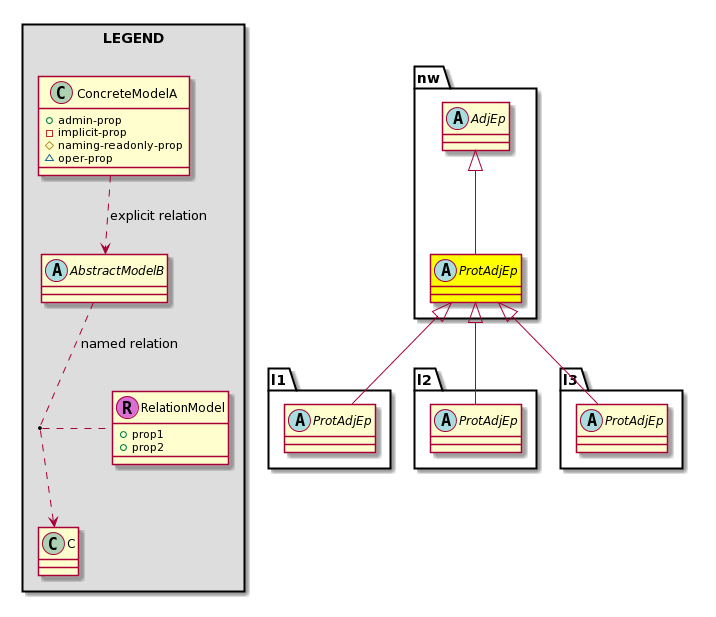
Super Mo: nw:AdjEp,
Sub Mos: l1:ProtAdjEp, l2:ProtAdjEp, l3:ProtAdjEp,
|
|||||||||
| Naming Rules | |
DN FORMAT:
|
|
| Diagram | |

Super Mo: nw:AdjEp, Sub Mos: l1:ProtAdjEp, l2:ProtAdjEp, l3:ProtAdjEp, |
|
| Inheritance | ||||||||||||||||||||||||||||||||||||||||||||||||||||||||||||||||||||||||||||||||||||||||||||||||||||||||||||||||||||||||||||||||||||||||||||||||||||||||||||||||||||||||||||||||||||||||||||||||||||||||||||||||||||||||||||||||||||||||||||||||||||||||||||||||||||||||||||
|
||||||||||||||||||||||||||||||||||||||||||||||||||||||||||||||||||||||||||||||||||||||||||||||||||||||||||||||||||||||||||||||||||||||||||||||||||||||||||||||||||||||||||||||||||||||||||||||||||||||||||||||||||||||||||||||||||||||||||||||||||||||||||||||||||||||||||||
| Events | |
|
|
| Faults | |
|
|
| Fsms | |
|
|
| Properties Summary | |||||||||
| Defined in: nw:Ep | |
|
naming:Name
string:Basic |
name (nw:Ep:name) Overrides:nw:Conn:name The name of the object. |
| Defined in: mo:TopProps | |
|
mo:ModificationChildAction
scalar:Bitmask32 |
childAction (mo:TopProps:childAction) Delete or ignore. For internal use only. |
| reference:BinRef |
dn (mo:TopProps:dn) A tag or metadata is a non-hierarchical keyword or term assigned to the fabric module. |
| reference:BinRN |
rn (mo:TopProps:rn) Identifies an object from its siblings within the context of its parent object. The distinguished name contains a sequence of relative names. |
|
mo:ModificationStatus
scalar:Bitmask32 |
status (mo:TopProps:status) The upgrade status. This property is for internal use only. |
| Properties Detail |
Type: mo:ModificationChildAction Primitive Type: scalar:Bitmask32 Units: null Encrypted: false Access: implicit Category: TopLevelChildActionComments:
| |||
Type: reference:BinRef Units: null Encrypted: false Access: implicit Category: TopLevelDnComments:
Type: naming:Name Primitive Type: string:Basic Overrides:nw:Conn:name Units: null Encrypted: false Access: admin Category: TopLevelRegularComments:
Type: reference:BinRN Units: null Encrypted: false Access: implicit Category: TopLevelRnComments:
Type: mo:ModificationStatus Primitive Type: scalar:Bitmask32 Units: null Encrypted: false Access: implicit Category: TopLevelStatusComments:
| |||
|
|||||||||